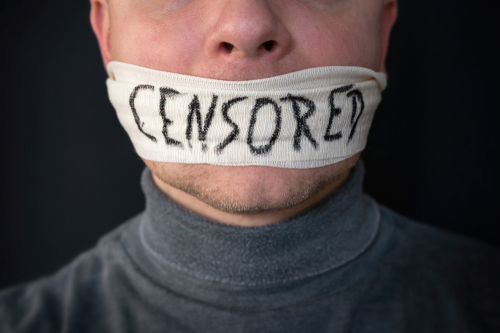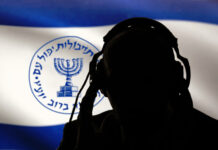
In a shocking display of government overreach, British courts have charged a man with what many are calling a "thoughtcrime" for silently praying near an abortion clinic. Army veteran Adam Smith-Connor, whose silent prayer for his deceased son lasted only a few minutes, was arrested in Bournemouth under a Public Space Protection Order (PSPO), which prohibits protests and acts of disapproval near abortion facilities, including prayer. The PSPO, often referred to as a "buffer zone," was designed to prevent harassment of women seeking abortions but has since been used to limit personal expressions of belief.
Smith-Connor’s case has drawn widespread attention as he was arrested solely for his silent prayer, a profound invasion of personal liberty. Although the veteran kept his back to the clinic and refrained from speaking, his prayer was deemed a violation of the buffer zone's restrictions, which bar any activity that could be perceived as disapproving of abortion. This situation, many critics argue, is straight out of George Orwell's dystopian novel 1984, where even silent, unspoken thoughts could be criminalized.
🚨 Breaking news 🗞️
Silent prayer has been criminalised.
The rubicon has been crossed. We have thoughtcrime in the United Kingdom. pic.twitter.com/zz1FEnjaMe
— Fr Calvin Robinson (@calvinrobinson) October 16, 2024
During Smith-Connor's trial, the defense highlighted the inconsistency in the law’s application, pointing out that in previous encounters, police had informed him that praying silently in a public place was not illegal. However, under increasing pressure to enforce PSPO laws, officers arrested him after determining that his prayer fell under the prohibited activities outlined in the buffer zone. Smith-Connor’s lawyer expressed outrage, stating that the prosecution sets a dangerous precedent, threatening to criminalize thoughts and infringe on basic human rights.
This isn’t the first time British citizens have been prosecuted for similar actions. Isabel Vaughan-Spruce, a pro-life activist, was arrested twice for silent prayer near abortion clinics. Although found not guilty, her case highlights the growing tensions between free expression and the government’s attempts to limit perceived "offensive" behavior in certain public spaces. Vaughan-Spruce’s arrest, like Smith-Connor's, involved the same PSPO law, which has already sparked heated debates in Parliament about whether such restrictions are necessary to prevent harassment, or if they infringe on fundamental rights to freedom of thought and speech.
In the UK the Thought Police are real.
You can be charged with thought crimes.
How the hell did we get here?— Darren of Plymouth 🇬🇧 (@wolsned) August 10, 2024
The UK Parliament’s recent passage of the Public Order Act 2023, which extends these buffer zones nationwide, has only intensified concerns over free speech and thought crimes. Critics argue that the law is ripe for abuse, enabling authorities to police personal beliefs and expressions, even in non-verbal, private forms like prayer. The extension of these zones across England and Wales could lead to more cases like Smith-Connor’s, where individuals find themselves on trial not for actions, but for their private contemplations.
Supporters of the buffer zones claim they are necessary to protect vulnerable women from harassment. However, many see the enforcement as heavy-handed and Orwellian, particularly in cases like Smith-Connor's where no interaction or confrontation took place. His arrest has galvanized public discourse on the limits of free speech, with many questioning whether the UK is sliding into authoritarian territory by punishing people for what they think, rather than what they do.
For Smith-Connor, the arrest is deeply personal. Having previously facilitated an abortion, he was praying not only for the women facing difficult choices, but also for the son he lost through abortion, a decision he now regrets. His case has sparked a broader conversation about the boundaries of religious freedom in modern Britain and the state's role in policing moral expressions.
The trial, which has spanned nearly two years, continues to be a contentious issue in the UK, drawing attention to the broader implications of PSPOs. While many believe in the importance of protecting individuals from harassment, others fear that prosecuting individuals for their silent prayers could lead to a slippery slope of thought policing in a supposedly free society.












